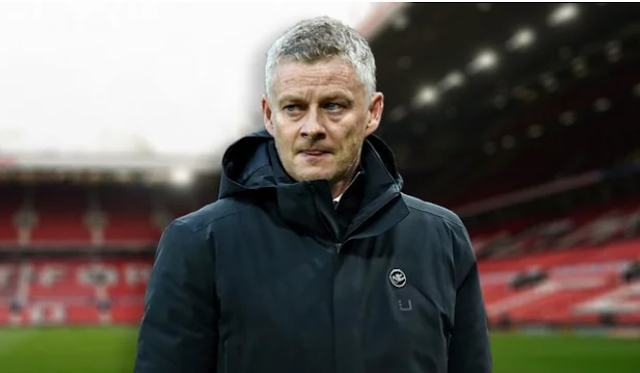Ole Gunnar Solskjaer sacked by Manchester United after Watford defeat
Ole Gunnar Solskjaer leaves Manchester United after nearly three years as manager; the Norwegian led United to third and second-place finishes in the Premier League during his two full seasons in charge but failed to win a trophy
Ole Gunnar Solskjaer has been sacked as Manchester United manager after an "embarrassing" 4-1 defeat at Watford.
Solskjaer signed a new three-year deal in July but leaves after overseeing five defeats in their last seven Premier League matches - a run which sees them 12 points behind leaders Chelsea.
The Old Trafford hierarchy had ignored increasingly vociferous calls to relieve Solskjaer of his duties in the wake of a humiliating 5-0 loss to rivals Liverpool and a 2-0 derby defeat to Manchester City in early November.
But his position was discussed by United officials on Saturday evening following the crushing defeat at Vicarage Road, before the announcement of his dismissal followed on Sunday morning.
Solskjaer was booed by a number of the United fans in the away end at full time, although midfielder Bruno Fernandes appeared to try to redirect their frustration towards the players.
Please use Chrome browser for a more accessible video player
FREE TO WATCH: Highlights from Watford's win over Manchester United in the Premier League
Goalkeeper David de Gea labelled the defeat "embarrassing" but added: "It's easy to blame the manager or the staff but sometimes it's the players."
Asked what this result meant for his future, Solskjaer toldSky Sports: "I am working for and with the club. Of course we have good communication and if the club are thinking of doing something that is a conversation between us."
Please use Chrome browser for a more accessible video player
Solskjaer revealed he was 'very low' after the defeat to Watford
Ole's journey 'at the wheel' ends without a trophy
Former United striker Solskjaer returned to the club initially as caretaker manager after the dismissal of Jose Mourinho in December 2018 and immediately produced an upturn in United's form - including the 3-1 win at Paris Saint-Germain in the Champions League.
'Ole's at the wheel' became a trending topic as Solskjaer was appointed on a permanent basis in March 2019.
He was unable to lead United into the top four of the Premier League that season but did achieve third and second-place finishes in his two full seasons in charge.
However, Solskjaer failed to deliver silverware during his tenure, with the defeat on penalties to Villarreal in last season's Europa League final being their best effort.
How did Solskjaer compare?
Saturday's defeat to Watford was Solskjaer's 168th game in charge of the club. In total, he won 91 of them, drawing 37 and losing 40.
Of Manchester United's four permanent managers since Sir Alex Ferguson's departure from the club, including David Moyes, Louis van Gaal and Jose Mourinho as well as Solskjaer, the Norwegian's overall win rate of 54 per cent puts him second.
Mourinho's win rate is the highest of the four at 58 per cent, while Moyes and Van Gaal trail on 53 per cent and 52 per cent respectively.
Manchester United's recent derby defeat to City, when they were comprehensively outplayed by Pep Guardiola's side only a couple of weeks after a 5-0 humbling by Liverpool, underlined the gulf between Solskjaer's side and the teams competing for the title.
Overall, Solskjaer's record against the traditional big-six - Manchester City, Liverpool, Chelsea, Arsenal and Tottenham - is mixed, with 14 wins, 10 draws and 12 losses.
His win rate of 39 per cent in those games is higher than Mourinho's and considerably higher than Moyes' but it is lower than Van Gaal's. The Dutchman won 10 of his 23 meetings against the big-six - giving him a success rate of 43 per cent.
Solskjaer's win percentages put him on a similar level to his predecessors but therein lay the problem for him.
He was originally appointed on an interim basis in order to provide short-term improvement, which he did in the second half of the 2018/19 campaign, but the remit changed when he took the job permanently.


Comments